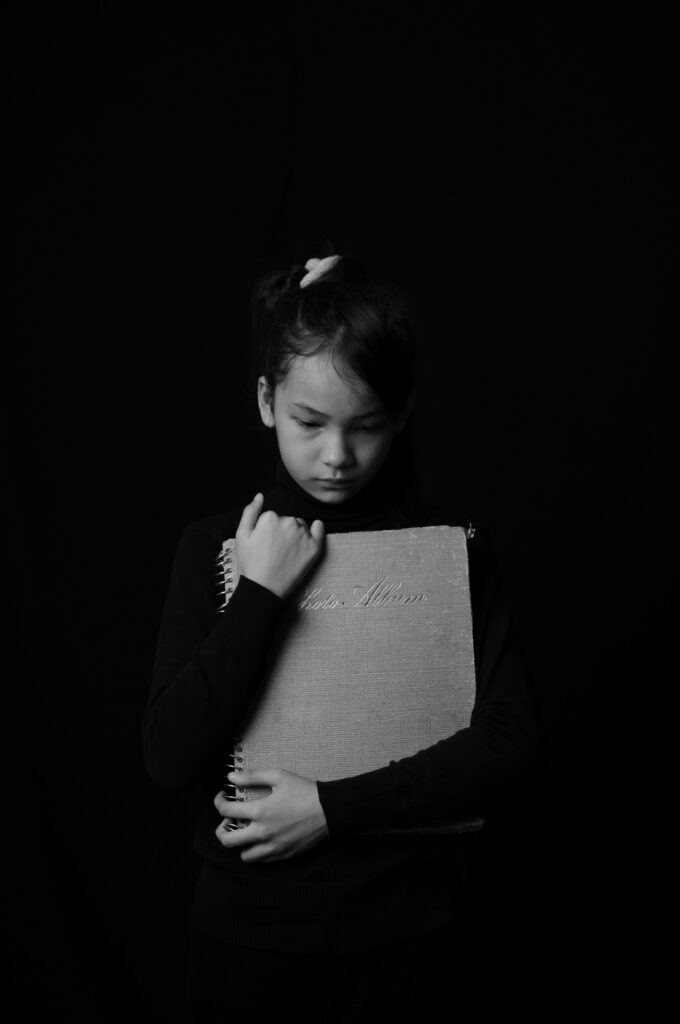Guest blog post by Sally Curran, BA
Kids change quickly as a natural part of their development processes, and as they go through various phases, it can be challenging to know what’s normal and what might require a bit of help. As parents, it’s chief among our responsibilities to guide them and help them discern the best path forward.
When realizing a child is depressed, parents have a multitude of options. First, it’s essential to know that depression is readily treatable. Therapists have a bevy of highly effective treatments and strategies at their disposal to help clients learn to cope and thrive. Moreover, the vast majority of those who seek treatment will feel more like themselves again within a relatively quick order.
Depression Warning Signs
 Especially as they become tweens and teens, children deal with an extreme range of emotions and mood swings as they come into their own. Knowledge is power when it comes to sorting out what is serious and what could require professional help.
Especially as they become tweens and teens, children deal with an extreme range of emotions and mood swings as they come into their own. Knowledge is power when it comes to sorting out what is serious and what could require professional help.
Feeling sadness about the ordinary course of events (doing poorly on a test or being disappointed by a friend, for example) is simply a part of being human. Sadness is generally related to a specific incident or trigger, and relief from these feelings (and the crying and venting that often accompany them) comes.
Depression, however, is different. Keep an eye out for the following signs:
- Low self-esteem, withdrawal from everyday activity, or lack of interest
- Hopelessness, guilt, or shame
- Changes in academics, eating habits, or sleep patterns
- Low energy or motivation
- Thoughts of death or suicide
Related Reading: 18 Warning Signs of Childhood Depression Every Parent Should Know
As with any problem, it’s imperative to face depression head-on by giving your child the resources to do so.
My Child Is Depressed—What Can I Do?
If you feel your child is dealing with depression, above all else, talk with your child. Empathize with them, and help them to realize they are not alone in their struggles. Loop your child’s pediatrician in to rule out issues related to physical health; doctors can screen kids and teens for depression as well.
Also, change is ever-present in today’s world and can cause sadness and depression. Here are some tips on how to feel happy when change keeps you down.
Be Their Greatest Advocate
 Of course, to be acutely in tune with your child, it’s crucial to provide emotional support. Solid familial relationships are the backbone to the success of every subsequent relationship in children’s lives. To foster these strong bonds, keep the lines of communication going with honest conversations. Be sure to truly listen to—not just hear—what is being said. With regular quality time (and this doesn’t have to involve long, drawn-out planned events—chatting in the car on the way to school or in the aisles of the grocery store count, too), kids are generally more apt to open up, sharing their stumbling blocks and worries. As such, parents will be more readily able to step in if further help is warranted.
Of course, to be acutely in tune with your child, it’s crucial to provide emotional support. Solid familial relationships are the backbone to the success of every subsequent relationship in children’s lives. To foster these strong bonds, keep the lines of communication going with honest conversations. Be sure to truly listen to—not just hear—what is being said. With regular quality time (and this doesn’t have to involve long, drawn-out planned events—chatting in the car on the way to school or in the aisles of the grocery store count, too), kids are generally more apt to open up, sharing their stumbling blocks and worries. As such, parents will be more readily able to step in if further help is warranted.
Ensure Overall Healthiness
No man is an island, and in the same vein, each aspect of the human body is dependent on every other part’s health. And while you can’t force a kid to adopt healthy habits, you can make good choices a tenet of your family. Regular exercise boosts the mood and relieves stress. Healthy meals, replete with whole grains and abundant fruits and veggies, ensure proper nutrition to fuel the body—consistent bedtimes with regular sleep to ward off exhaustion, which often deepens depressive feelings. Excessive screen time can also be problematic when it comes to mental health.
Create Connectivity
Feelings of isolation and loneliness are widespread among youth, but interaction and connection are a crucial part of good mental health. Amid quarantine and pandemic, meaningful socialization has certainly become difficult, but children and teens must continue interacting with others. Clubs and school functions, scouting, playdates, and family gatherings (virtually or with proper social distancing) can all be ways to find a connection.
Related Reading: 9 Ways to Help your Child with Anxiety when Feeling Socially Isolated
Build Safety & Security
 Be a sounding board for bullying and troubles with peers, which can both breed significant mental health issues. Moreover, grief and loss can be likewise problematic. If these issues have been part of the fabric of your family, seek help, mainly if you as a parent are handling grief and loss.
Be a sounding board for bullying and troubles with peers, which can both breed significant mental health issues. Moreover, grief and loss can be likewise problematic. If these issues have been part of the fabric of your family, seek help, mainly if you as a parent are handling grief and loss.
Establish your home as a sanctuary. Stress is difficult for kids and teens to manage, and it is only made worse with unrealistic expectations at home. Help your children break problems down into manageable steps. Keep dangerous items (guns, knives, medication [prescription and otherwise], and alcohol locked up.
Related reading: Why You Should Consider Yoga Therapy for Grief Relief
Share with your children familial histories of depression, other mental health issues, and addiction. People need to know that they may be at an increased risk. Additionally, it may provide some solace to know that loved ones have faced and overcome similar issues.
Next Steps: What Can I Do To Help My Depressed Child?
If you have determined that therapy is a good option, ensure your child attends each therapy session. Again, remember that therapy may take some time to work. Never hesitate to reach out with worsening feelings, thoughts of harm to self or others, or questions about treatment’s adverse effects.
There is help available when your child is depressed! We would be honored to walk alongside your child as they find their way free of depression. Each Life Care Wellness therapist is trained in a variety of effective treatments for anxiety and depression. Please reach out to us at Life Care Wellness at 630-423-5935 to schedule your first depression appointment today. We have three Chicago-area locations (Glen Ellyn, Jefferson Park, and Sycamore) to serve you.




